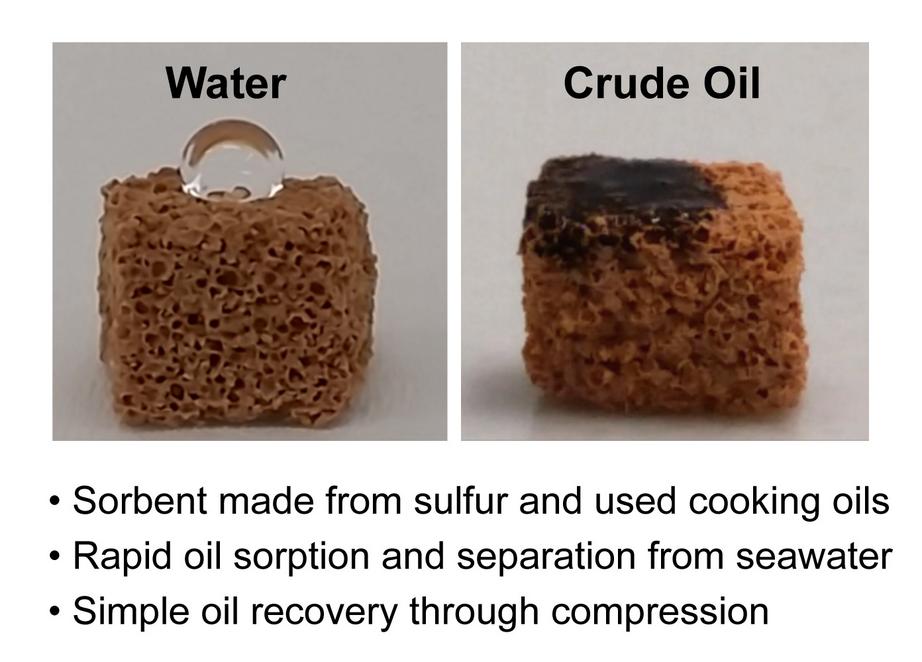Cheap new oil spill solution from waste products
Polluted beaches, oily water, dead birds and marine life destruction caused by crude oil spills could be a thing of the past with pioneering new research led by Flinders University.
An exciting, more sustainable answer to effectively clean up oil spill destruction follows development of a new way to quickly soak up crude oil with an absorbent polymer – itself made from waste products from the petroleum and refining industries.
In an environmental win-win, the new type of polymer made from waste cooking oil and sulphur (a by-product of the petroleum industry) has the ability to clean up crude oil and diesel spills.
Better still, because this highly buoyant polymer acts like a sponge to absorb the waste materials from sea water, the polymer can be squeezed to recover the oil and then reused.
Award-winning scientist Dr Justin Chalker, Senior Lecturer in Synthetic Chemistry at Flinders University in Adelaide, South Australia, is leading an international research team responsible for the discovery. He is delighted that chemists are finding new ways to provide cheap and effective solutions to curb the damage caused by oil spills, and even mercury in the environment.
“This is an entirely new and environmentally beneficial application for polymers made from sulphur,” says Dr Chalker. “This application can consume excess waste sulfur that is stockpiled around the globe and may help mitigate the perennial problem of oil spills in aquatic environments.”
Oil spills are a major global issue, with the International Tanker Owners Pollution Federation (ITOPF) reporting about 7000 tonnes of crude oil spilling from tankers into oceans in 2017 alone. A recent large oil spill off Borneo, for example, and prompted Indonesian authorities to declare a State of Emergency.
The international team of researchers point to the effects of recent large-scale spillage catastrophes as a potent reason driving their research – in particular, the explosion on the Deepwater Horizon offshore drilling rig in 2010 and subsequent release of approximately 4.9 million barrels of crude oil into the Gulf of Mexico.
“This is a new class of oil sorbents that is low-cost, scalable, and enables the efficient removal and recovery of oil from water,” says Dr Chalker.
The research was supported by the Australian Government National Environmental Science Program, Australian Research Council, Royal Australian Chemical Institute, Australian Microscopy and Microanalysis Research Facility, Australian National Fabrication Facility, FCT Portugal, The Royal Society, Engineering and Physical Sciences Research Council and European Research Council.
Also see The Mercury Problem in Artisanal and Small-Scale Gold Mining published in Chemistry, A European Journal. (chemeurj.org): here

